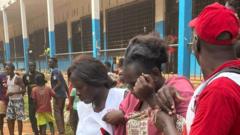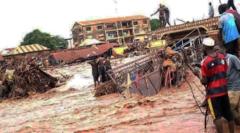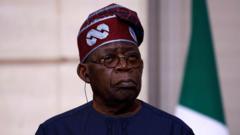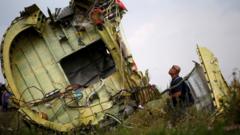Following a dramatic exam season marred by technical failures, a staggering 80% of students failed to pass Nigeria's university-entrance exams, igniting public outrage and tragic consequences. The Joint Admissions and Matriculation Board (JAMB) has acknowledged "technical glitches" that disrupted the exams, leading to frustrations among 1.9 million candidates. Reports reveal students experienced severe issues such as login failures, missing questions, and power outages. The negative impact was felt acutely when 19-year-old candidate Faith Timileyin Opesusi tragically took her own life after failing the exam for a second time. Her family shared that she felt hopeless after receiving a lower score than before.
Nigeria’s Exam Crisis: Low Pass Rates and Tragic Consequences
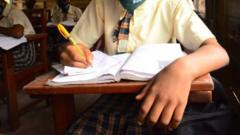
Nigeria’s Exam Crisis: Low Pass Rates and Tragic Consequences
A series of alarming events surrounding Nigeria's university entrance exams raises serious concerns about the system's integrity.
Despite JAMB's claims that only 400,000 students achieved the necessary marks to continue their education, criticism mounted on social media for the examination body's handling of the crisis. Registrar Ishaq Oloyede openly apologized for the "painful damage" caused and wept during a press conference while announcing that almost 380,000 affected candidates would be allowed to retake their exams. This move raised questions regarding the operational standards and accountability within Nigeria’s education system, stirring calls for Oloyede's resignation and further scrutiny into the commitment to educational reform.
Rather than merely reflecting the students' academic abilities, many officials and citizens asserted that this year’s exam results revealed systemic failures underlined by incompetence, which critics have referred to as educational sabotage. As the country grapples with these grave issues, the future of countless students hangs in the balance.
The overall atmosphere is one of despair and urgency, prompting a demand for thorough investigations into the failures of an essential institution already strained by controversies surrounding educational equity in Nigeria.
Rather than merely reflecting the students' academic abilities, many officials and citizens asserted that this year’s exam results revealed systemic failures underlined by incompetence, which critics have referred to as educational sabotage. As the country grapples with these grave issues, the future of countless students hangs in the balance.
The overall atmosphere is one of despair and urgency, prompting a demand for thorough investigations into the failures of an essential institution already strained by controversies surrounding educational equity in Nigeria.



